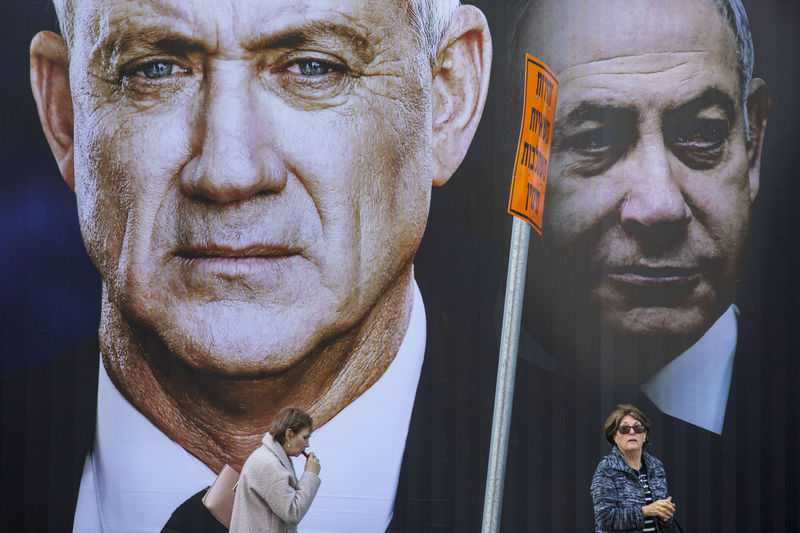Netanyahu, Gantz neck and neck as election nears
02 March, 2020

Israeli Prime Minister Benjamin Netanyahu and rival Benny Gantz were overall another bitter election campaign on Saturday, before voters cast their ballots for the third amount of time in 12 months.
Netanyahu, Israel’s longest-serving leader, has been charged on several counts of corruption but is battling fiercely to keep his grip on power.
After inconclusive elections in April and September, latest judgment polls put both opponents neck and neck in a gruelling political triathlon.
Based on the projections, Netanyahu’s right-wing Likud and Gantz’s centrist Blue and White alliance would each win 33 seats in the 120-member Knesset, Israel’s parliament, in Monday’s polls.
That result will be almost identical to the prior round, after which each leader tried and didn't form a government.
In previously unannounced tv interviews aired separately Saturday evening, Gantz and Netanyahu ripped into each another.
Netanyahu told private Channel 12 that his opponent, a decorated former head of Israel’s military, was “not fit to be prime minister” of Israel.
“He is weak, he’s not really a leader,” the incumbent said.
The same interviewer earlier asked Gantz if he'd join a coalition under Netanyahu if the 3rd round also didn't create a clear winner.
“There is absolutely no situation in which I will sit under Netanyahu as prime minister when he has three charges against him,” Gantz replied.
The view polls show that despite having their respective allies - the right and Jewish Orthodox parties for Netanyahu and the center-left for Gantz - neither side could gather the 61 seats necessary to form a viable coalition.
Later Saturday, the leaders were to speak at final pre-election rallies, both in the Tel Aviv area.
Judging from a barrage of social media messages, their central goal is to obtain voters out.
With a country largely jaded by three general elections in less than a year along with municipal polls in between, voter turnout may be the great unknown.
In Israel’s last general election in September, turnout was 1.5 percentage points greater than in April, largely because of an urgent surge in Arab votes.
Israeli Arab parties, united in the Joint List alliance, garnered 13 Knesset seats, making them the third-largest grouping, after Blue and White’s 33 and Likud’s 32.
These times they hope to do better still, due to Arab voters’ opposition to U.S. President Donald Trump’s controversial Middle East peace plan, which is supported by both Netanyahu and Gantz.
“We want nov Netanyahu because he is the best inciter against Arab citizens and the godfather of the ‘Deal of the Century,”’ Joint List leader Ayman Odeh said, by using a common nickname for the Trump plan.
The program endorses the Jewish state’s major priorities at the trouble of the Palestinians, who gave no input to the Trump initiative and rejected it immediately.
There is another new element in this third round - the novel coronavirus.
In the last 10 days, electioneering has shared media headlines with the global COVID-19 epidemic which has reached Israel with six officially confirmed cases of infection.
Israeli authorities have create a call center to screen potential cases and reassure the general public, and Israel has entry to foreign travellers from various countries, most recently Italy.
Internal Security Minister Gilad Erdan has warned against potential attempts to spread false rumours about the outbreak to decrease voter turnout.
Source: the-japan-news.com
